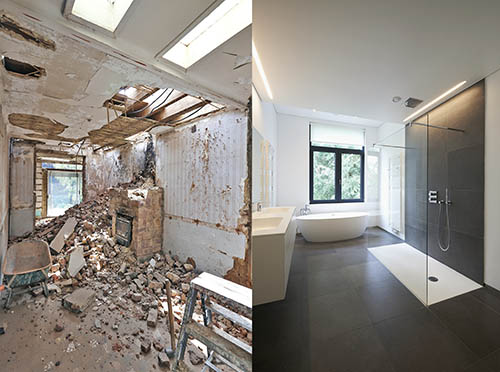Home Equity Tips: 3 Upgrades That Will Make Your House Worth More When You Sell
 It’s likely that your house is your biggest asset, so when it comes time to sell it you’ll want to do everything you can to maximize your profit. Good news the value of your home isn’t solely determined by the market, there are several ways in which you can increase its value by making upgrades before listing.
It’s likely that your house is your biggest asset, so when it comes time to sell it you’ll want to do everything you can to maximize your profit. Good news the value of your home isn’t solely determined by the market, there are several ways in which you can increase its value by making upgrades before listing.
Let’s take a look at 3 top upgrades that will make your house worth more when you sell.
1. Make It Profitable
Not surprisingly, the number one way in which you can increase the value of your home is to add an income suite within the property. If your home has potential to earn buyers’ money it will inevitably be more valuable than a property that doesn’t have any potential cash flow for the owner. Whether it’s a basement suite or a floor that’s been made into a separate unit, income units are a huge bonus for buyers. Making money while paying off their home would be a dream come true for most people, and it’s a dream that buyers are willing to pay a high price for.
2. Kitchen Is Key
Kitchens are often the first area to become dated or worn out within a home, and they’re the most important part of the house when it comes to valuation. Make sure that your cabinets and countertops are updated before selling, and modernize the design with neutral fixtures that are current yet adaptable to many tastes. Having a fresh kitchen shows both function and fashion to buyers. After all, no one wants to see rusty old appliances and dingy lights when walking into the focal point of a home.
3. Beautify The Bathrooms
Besides the kitchen, bathrooms are the second most important aspect of a home when it comes to valuation. Having multiple bathrooms within a home automatically increases its value significantly, especially if at least two have at least three pieces within them, containing at least a sink, toilet, and either a shower or bath. Ensuring that your bathrooms are leak-free, look meticulously clean, and have a modern design is a fantastic way to make sure that buyers will be impressed during an open house.
Bonus tip: if installing a new toilet, consider purchasing one that is eco-friendly with dual-flush options. As people become more and more environmentally conscious, fixtures such as these will cater to a broad spectrum of lifestyle values.
If you’re ready to prepare your home for sale and are looking for more ways in which you can maximize its market value, contact your local mortgage professional today.

 For many people, investing in a house is one of the most important purchases they will make in their lifetime. However, alongside having the comfort of your own home, there are many financial benefits associated with buying in. If you’re currently perusing the market for opportunities, here are some reasons to consider investing a little sooner.
For many people, investing in a house is one of the most important purchases they will make in their lifetime. However, alongside having the comfort of your own home, there are many financial benefits associated with buying in. If you’re currently perusing the market for opportunities, here are some reasons to consider investing a little sooner. There are a variety of factors that are involved in getting your mortgage approved, but few things will have more of an impact than your FICO score and the credit history that goes along with it. Instead of leaving your score up to chance when submitting your application, here are a few ways that you can boost your financial wellbeing and leave your credit score better off than it was before.
There are a variety of factors that are involved in getting your mortgage approved, but few things will have more of an impact than your FICO score and the credit history that goes along with it. Instead of leaving your score up to chance when submitting your application, here are a few ways that you can boost your financial wellbeing and leave your credit score better off than it was before.